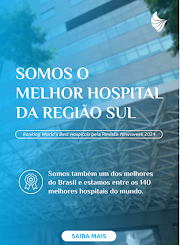3.179 AMICOR (26)
#Com Dra. Valderês A. Robinson Achutti (*13/06/1931+15/06/2021)

#ASRM Entrevista para André Pereira e Bruna Paz Ferreira em 27/02/2024
#HMV
#HMV


#IHME
Pakistan becomes hub for cephalosporin AMR |
|

Published in The Lancet Global Health, this recent study dives deep into the murky waters of antimicrobial resistance (AMR) within Salmonella enterica serovars Typhi and Paratyphi A infections across 75 endemic countries from 1990 to 2019.
Findings 💡 - Several regions, especially those in sub-Saharan Africa, faced daunting multidrug resistance (MDR) S. Typhi, where prevalence had skyrocketed from 6% in 1990 to a staggering 72.7% in 2019.
- The data paint a vivid picture: Rising tide of resistance, with fluoroquinolone non-susceptible (FQNS) S. Typhi hitting a formidable 95.2% in South Asia by 2019.
- Pakistan was found to be a hotspot for third-generation cephalosporin resistance, reaching 61% in S. Typhi by the study's end.
- Urgency of public health interventions: Calls to arm against this microbial insurgency through improved water, sanitation, hygiene, and typhoid fever vaccination campaigns.
|
|
Women's History Month data highlights
Commemorate Women's History Month with global insights on women's contributions and vital data. Despite rising contraceptive use, a recent GBD study reveals enduring unmet needs, hindering the fundamental human right to family planning. Analyzing Burkina Faso, Kenya, and Nigeria, the study finds regional variations in six key family indicators. While national improvements are noted, localized insights illuminate unique challenges and successes. Read the research → |
|
|
Migraine Risk: Why Women Experience More Severe Headaches Than Men? (India.com)
» As per the Global Burden of Disease Study 2019, worldwide migraine is the leading cause of disability among women aged 18-49. Studies also show migraines are more frequent, disabling and long-lasting in women than in men. [Women are] also more likely than men to have anxiety and depression related to migraines and seek medical care and prescription drugs than men. |
|
|
Obesity: A silent risk to women’s hearts (The Hindu Business Line)
» ...the Global Burden of Disease Study estimates heart disease to be the leading cause of death amongst women in India, higher than all cancers combined. An often overlooked contributor to this massive burden is obesity, but the conversation on the topic remains largely limited. |
|
|
LinkedIn post of the week 
Ensuring effective health services delivery requires precise location data. Planet, Microsoft’s AI for Good Lab and the Institute for Health Metrics and Evaluation are leveraging #AI to map climate-vulnerable populations in unprecedented detail, illuminating risks and enabling proactive action. Fascinating! https://bit.ly/48Ae3m7
— WHO Foundation
Philanthropic Fundraising Services supporting the World Health Organization (WHO) |
|
|
Sudan war threatens ‘world’s largest hunger crisis’: WFP » The war in Sudan threatens to trigger “the world’s largest hunger crisis”, a United Nations agency has warned. The World Food Programme (WFP) said on Wednesday that more than 25 million people scattered across Sudan, South Sudan and Chad are “trapped in a spiral” of food insecurity. (Al Jazeera)
Why Even Public Health Experts Have Limited Insight Into Stopping Gun Violence in America » Gun violence is among America’s most deadly and costly public health crises. But unlike other big killers — diseases like cancer and HIV or dangers like automobile crashes and cigarettes — sparse federal money goes to studying gun violence or preventing it. (KFF Health News) |
|
Researchers delved into how adverse childhood experiences contribute to the risk of psychiatric illness in adulthood, leveraging data from over 25,000 twins in the Swedish Twin Registry.
Read more
Summary: A new study reveals a statistical connection between the consumption of refined carbohydrates and decreased facial attractiveness, as judged by heterosexual volunteers of the opposite sex. Participants who consumed a high-glycemic breakfast, rich in refined carbohydrates, were rated as less attractive than those who had a low-glycemic meal. This research, involving 104 French adults, adds to the growing body of evidence suggesting that diet, specifically the intake of refined carbohydrates found in the Western diet, may impact non-medical traits such as attractiveness. The study also observed sex-specific differences in how snack consumption affects attractiveness, highlighting the complex relationship between diet and social perceptions./.../
|
| | Elliptic Curve ‘Murmurations’ Found With AI Take FlightBy LYNDIE CHIOU Mathematicians are working to fully explain unusual behaviors uncovered using artificial intelligence.
Read the article |
|
 | New Breakthrough Brings Matrix Multiplication Closer to IdealBy STEVE NADIS By eliminating a hidden inefficiency, computer scientists have come up with a new way to multiply large matrices that’s faster than ever.
Read the article
Related:
Matrix Multiplication
Inches Closer to Mythic Goal
By Kevin Hartnett (2021) |
 | Cellular Self-Destruction May Be Ancient. But Why?By VERONIQUE GREENWOOD How did cells evolve a process to end their own lives? Recent research suggests that apoptosis, a form of programmed cell death, first arose billions of years ago in bacteria with a primitive sociality.
Read the article
Related:
Cellular Life, Death
and Everything in Between
By Elizabeth Svoboda (2019) |
|
 | Fresh X-Rays Reveal a Universe as Clumpy as Cosmology PredictsBy LIZ KRUESI By mapping the largest structures in the universe, cosmologists have found that a cosmic anomaly appears to be fading away.
Read the blog |
 | Tiny Language Models Come of AgeBy BEN BRUBAKER;
Podcast hosted by SUSAN VALOT To better understand how neural networks learn to simulate writing, researchers trained simpler versions on synthetic children’s stories.
Listen to the podcast
|
|
|
#Our World in data
Women have gained the right to vote and sit in parliament almost everywhere. But they remain underrepresented, especially in the highest offices.

|
|
Recent articles, updates, and announcements |
|
The mission of Our World in Data is to make data and research on the world’s largest problems understandable and accessible.
We are a nonprofit, building Our World in Data as a public good that’s freely available to everyone. Help us do more by supporting us with a donation. |
|
Um abraço a todas as mulheres AMICOR e visitantes! 
|
|
|
No comments:
Post a Comment